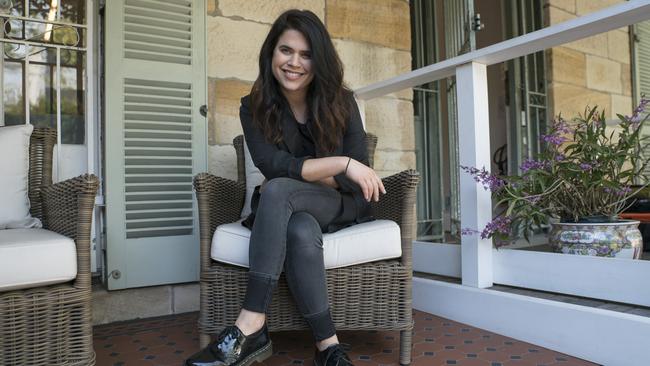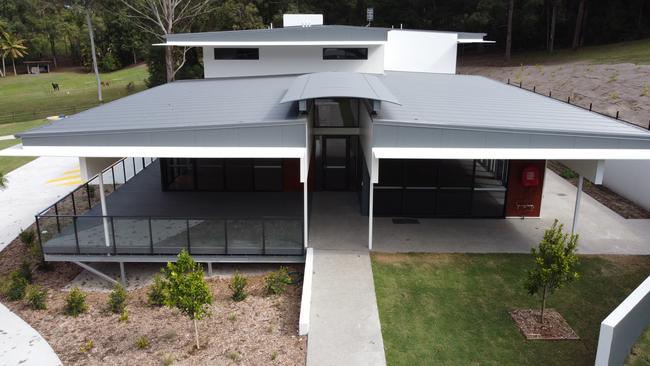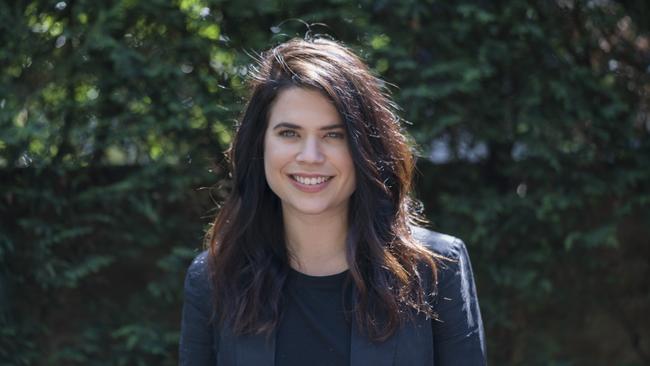Butterfly Foundation centre to treat eating disorders shut amid surge in cases
A Victorian eating disorder survivor has spoken out after a new Australian rehab clinic failed to open because of COVID - leaving many without critical care.

News
Don't miss out on the headlines from News. Followed categories will be added to My News.
Australia’s first ever residential facility for treating eating disorders can’t open its doors despite a fifty per cent increase in crisis calls about the conditions during COVID-19.
The Butterfly Foundation’s new Wandi Nerida facility was built using a $6 million federal government grant but does not have the $2.5 million it needs to staff the centre.
Nearly a million Australians suffer from eating disorders like anorexia nervosa, bulimia nervosa and binge eating.
And during the pandemic, the number of people contacting The Butterfly Foundation’s support line and webchat service for help had soared by 50 per cent during COVID.
Girls and boys as young a seven were developing the conditions that have a devastating impact and can lead to them taking their own lives.
The centre on Queensland’s Sunshine Coast was to pilot a new holistic care approach where patients from right across the country would spend around two months living in the 13-bed facility.
Around 50 staff, including psychiatrists, psychologists, dietitians and other health professionals, were to deliver them round the clock care.

The Butterfly Foundation said an application for funding support for the staff was rejected by the Queensland State Government during the recent state election campaign and fundraising activities were not possible due to COVID-19 restrictions.
The centre is even more essential than ever because sufferers are now unable to travel to the US for comprehensive residential-style care.
More than 200 people from around Australia are already on a waiting list to use the centre if it ever opens.
“We’re after two and a half million (dollars) from this fundraising campaign to get us up and running and our doors open and so we can fund individuals who don’t have any capacity to pay (for the care),” Butterfly Foundation CEO Kevin Barrow said.
“Eating disorders are quite severe and complex mental illnesses and actually have one of the highest mortality rates and also have a very high suicide rate.”

A Deloitte study found the total social and economic cost of eating disorders in Australia was $69.7 billion.
Their burden in terms of lost years of life is higher than that of depression and anxiety combined.
Of those with eating disorders: 47 per cent have Binge Eating Disorder, 12 per cent have Bulimia Nervosa, 3 per cent have Anorexia Nervosa and 38 per cent have other eating disorders.
Recovery from an eating disorder can take between one to six years, while up to 25 per cent of sufferers experience a severe and long-term illness.
Early detection and intervention is the key to a good recovery, Mr Barrow said.
“We do know that if you intervene early with a psychologist, dietitian, psychiatrist and general practitioner or working with the family outcomes can be very, very good (for around three in four people),” Mr Barrow said.
“We also know on the converse that if you do nothing and the illness is allowed to stay around for a period of time, it becomes harder and harder to manage,” he said.

At age 15 Katie Cameron developed anorexia nervosa, a psychological illness where a person severely restricts their food intake and fears gaining weight.
It occurred as she was coming to terms with her sexuality.
“I wasn’t what society expected me to be in terms of being a young woman,” she said.
“What started as like a really like mindful exercise and healthy eating became quite quickly something really insidious that I lost control over.”
The treatment she received for the condition was inadequate and did not tackle the psychological causes of her illness.
After being discharged from hospital she went on the develop bulimia nervosa, a condition where a person binge eats then purges themselves.
It was only after she sought out private psychological counselling that she began to recover and she expects it will be a lifelong journey.
Her experience demonstrated that Australia really needs to lift its standard of care for people with eating disorders and the new centre was desperately needed, she said.
“That kind of social and model that kind of wraps around the whole person support is really where health care needs to be sitting, that, that centre would be a game changer for Australia, it would bring us into line with what other people globally, are doing,” she said.
Now 33, Katie works as a health educator.
If you want to help get the centre off the ground, donate here https://butterfly.org.au/donate/ or butterfly.org.au/fightforwandinerida
If you need help please phone 1800 33 4673




